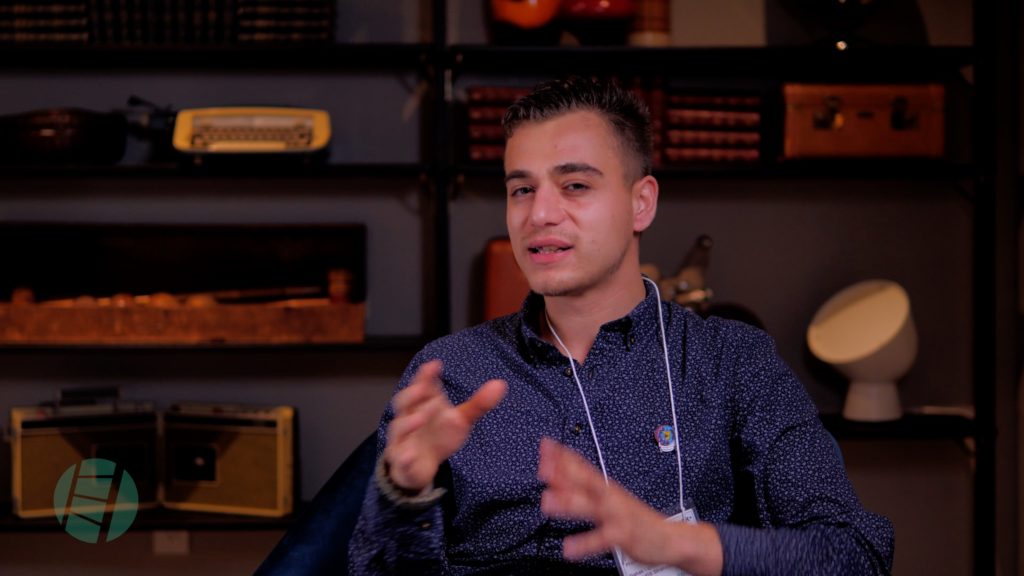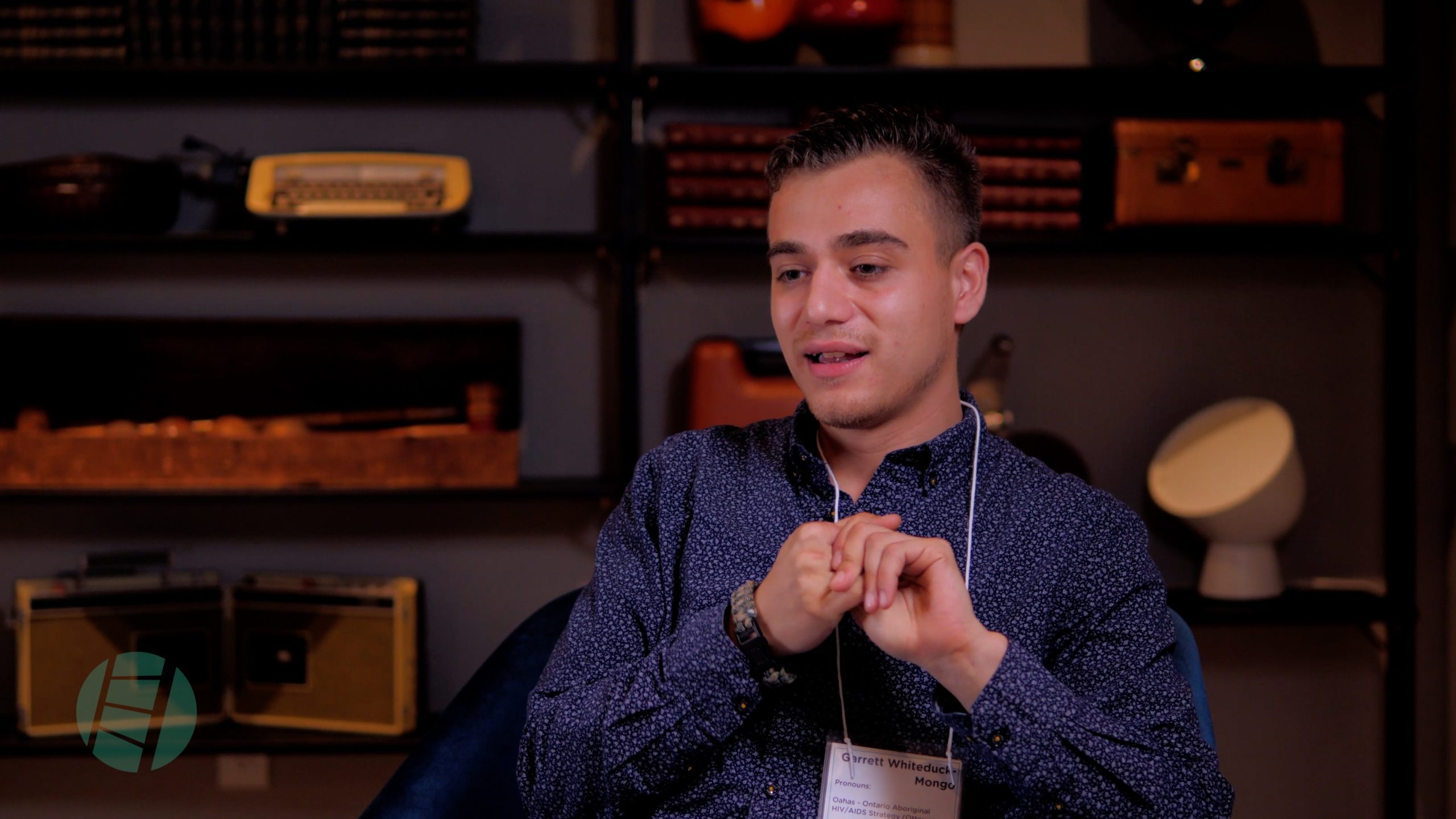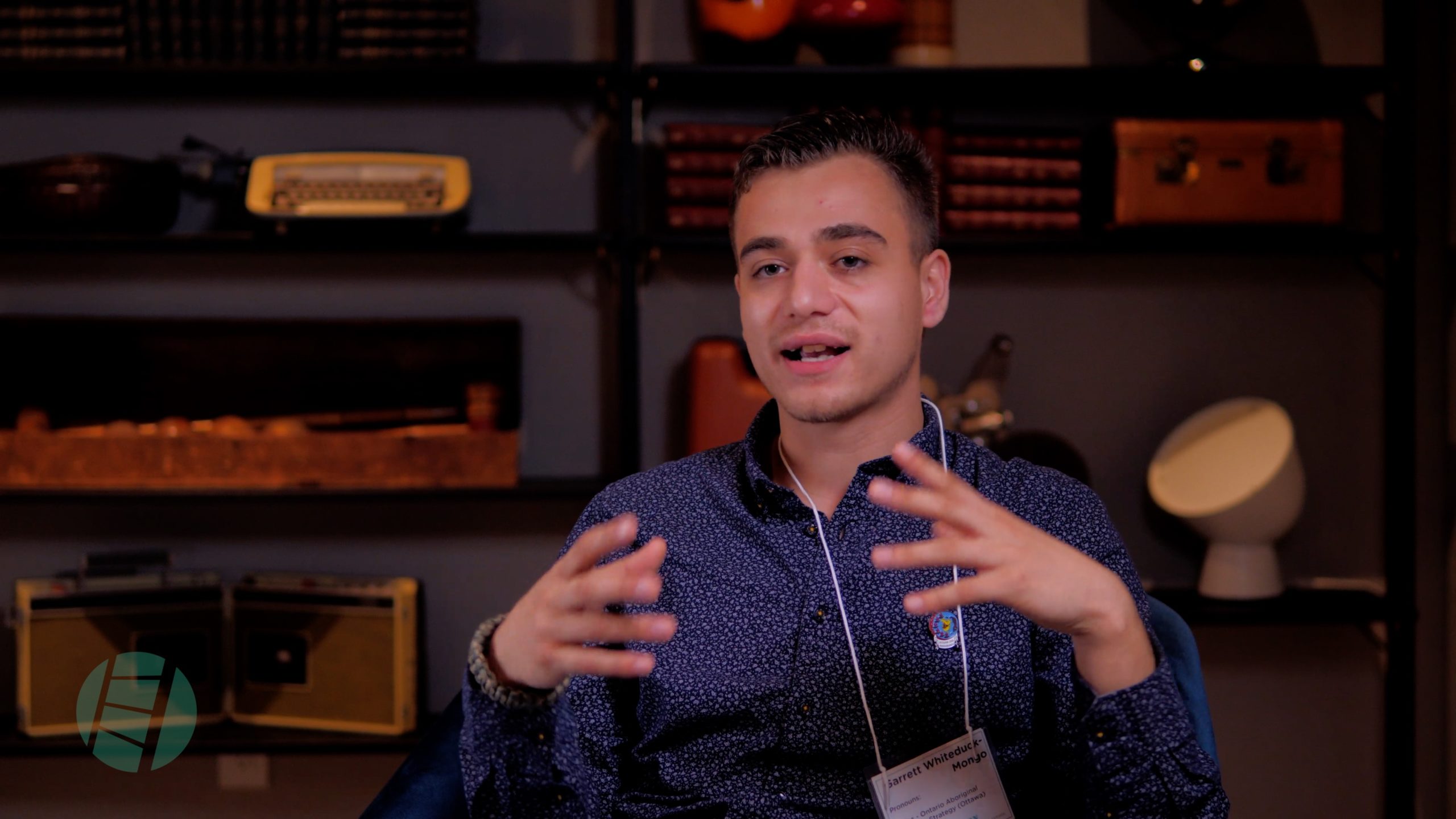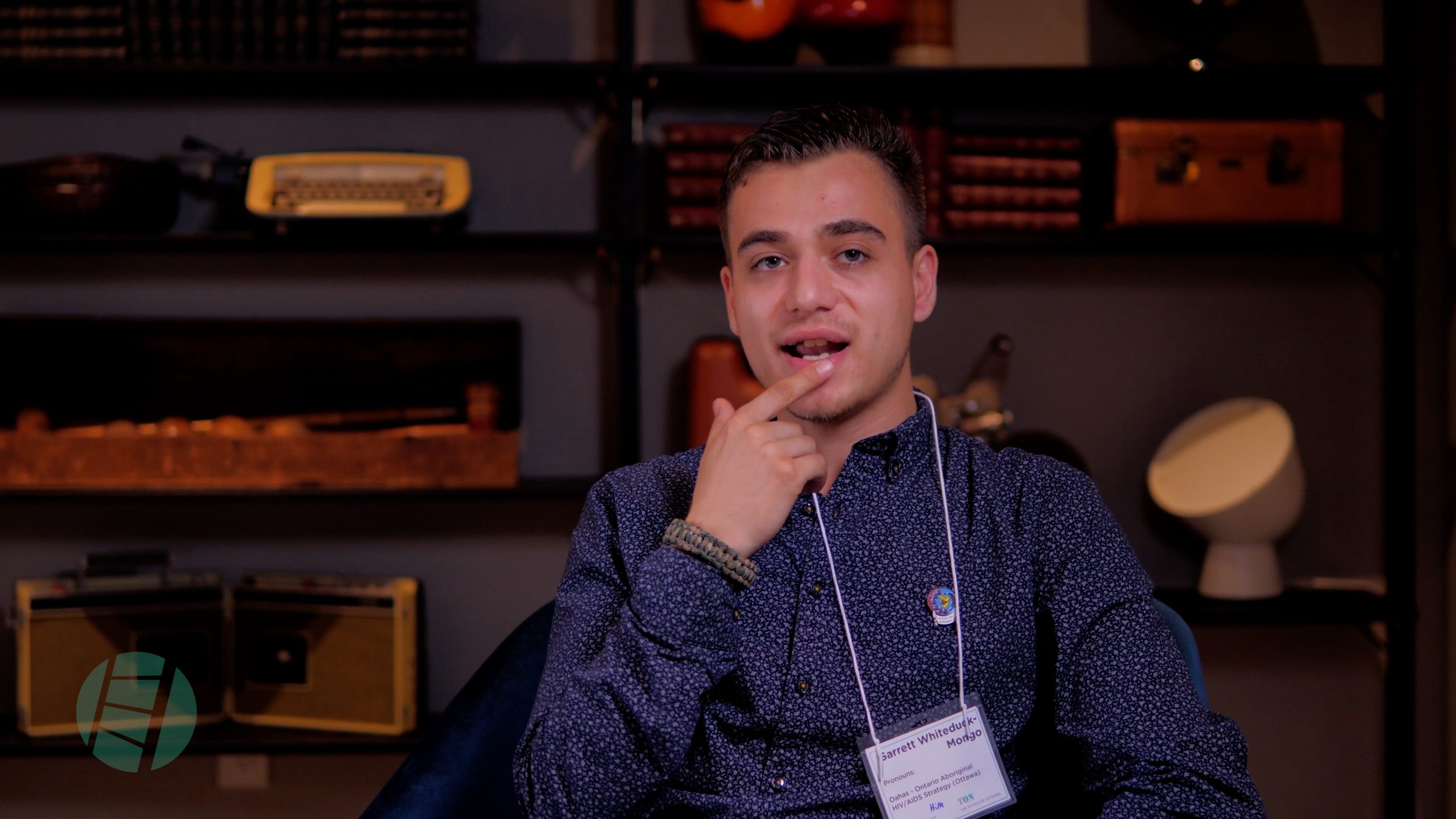
Meet Garrett Whiteduck-Mongo

Ottawa, Ontario
Watch Garret talk about his connections to home, boundaries, and trying to serve diverse Indigenous peoples and communities.
See Transcript
I’m from a community really close to Ottawa – like an hour and a half. It’s a reservation called Kitigan Zibi. So the past three or four years, instead of bouncing around, all over the country and like doing different jobs, I’m going to try and stay situated in Ottawa/Gatineau region, which is close to my home and near a lot of family and friends.
I see a lot of Inuit people. I see people, Natives from out West. I see Metis people. I see, even people from my own community sometimes, in the streets in Ottawa. But fortunately for us, our community is only an hour and a half away, whereas a lot of these people, like the Inuit, or the Natives from out West, or even the Metis, they’re from different parts in Ontario; they’re from Nunavut; they’re from out West – so they can’t just go home super easy, like some Algonquins from my community and surrounding communities.
I see myself in them because I’ve been there; I’ve been in the dumps and it’s like – I just know I never was able to do it alone, because I always ended up seeking support, whether it be from someone I’ve known my whole life, or someone I just got to know that weekend.
There are definitely boundaries that you share with people and sometimes, even if you don’t know someone very well, there’s still ways you could help them, without crossing personal boundaries.
So how do I better serve our community, which is the Indigenous community, but also, how do I cater to these individual communities, whether you’re Inuit, Metis? Like I said, you’re Cree from out West; You’re Cree from Northern Quebec. How do we you know do that, and that’s the hard part.



